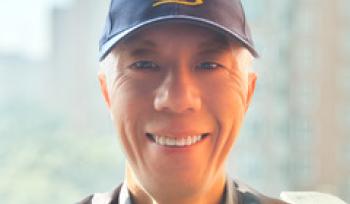Founded in 1996, Cepheid is a leader in molecular diagnostics, enabling patient specimen testing on a centralized or disseminated basis. Cepheid speeds up the typical diagnostic process, making it possible for medical providers to identify and treat diseases early. This, in turn, increases opportunities to improve patients’ survival and quality of life. After nearly 20 years in the industry, Cepheid continues to expand globally into new markets.
Organizational Challenge
As Cepheid has experienced hyper growth during the past few years, its leadership team recognized the importance of developing their talent pool and organizational capabilities. They turned to UC Berkeley Executive Education to partner with them and design a leadership program that would help the company transition and evolve to the next phase of global expansion. Cepheid’s growth challenges were twofold. From an organizational standpoint, they wanted to fine-tune the “Cepheid Way” in a global context, and develop the leadership bench-strength. From an individual perspective, they hoped to develop the skill-set and thought process of super-flexible leaders who can drive change, innovation and growth in an increasingly fluid world.
Program Overview
This was the first leadership development program in Cepheid’s history and was designed based around three core modules leading self, leading others and leading the business. The program also entailed pre-work, including the completion of a 360 assessment that was later debriefed during the program.
The first module was based on leading self; the participants focused on diagnosing and enhancing their leadership capabilities, including communication, storytelling and influencing skills. The goal was to build self-awareness and provide practical techniques that could be used for follow-up implementation.
The second module was centered around leading others. This part of the program was taught in part by members of Cepheid’s top executive team. During this module, participants honed their collaboration, teamwork and coaching skills. Additionally, they had an opportunity to discuss company-specific challenges and potential improvement opportunities.
The final module on leading the business focused on addressing organizational and cultural challenges. This module was also taught in part by Cepheid co-faculty, including its CEO. It addressed cross-functional challenges, collaboration opportunities and critical transition steps.
The program concluded by bringing all three components together, and focused on the key takeaways and actionable next steps. This segment, leader as teacher, gave the participants an opportunity to synthesize their key lessons and package what they had learned. The intention was to communicate critical insights to their teams back at Cepheid.
Participants Profile
- 20 participants from the United States and Europe
- Leaders in Various Functions including R&D, sales and marketing, finance, and regulatory affairs


